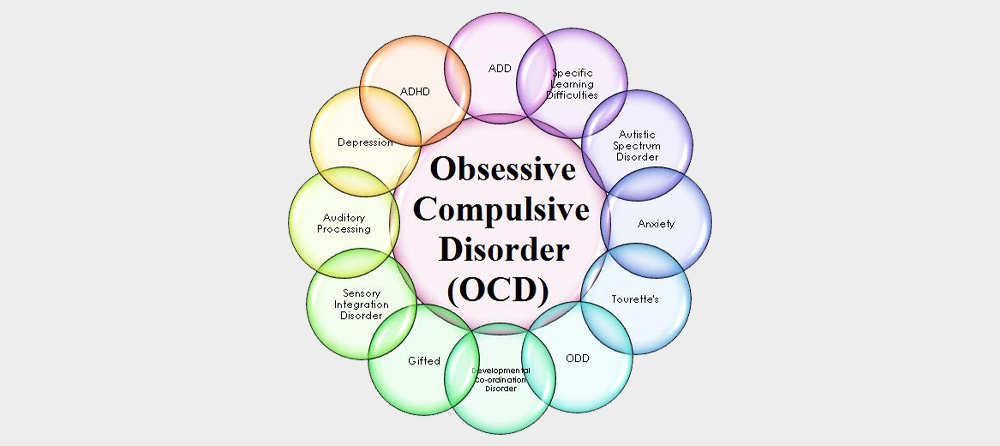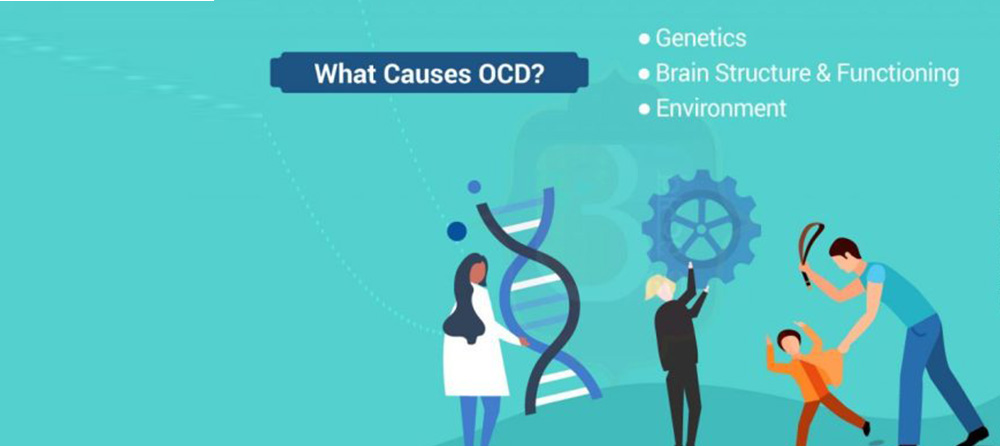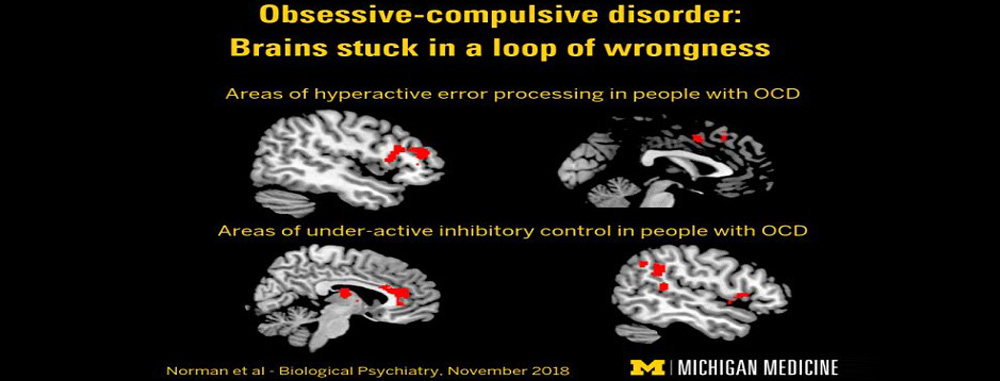A Comprehensive Guide to Obsessive Compulsive Disorder
Obsessive-Compulsive Disorder (OCD) is a mental health disorder that features a pattern of unwanted obsessions, irrational thoughts, and excessive unreasonable urges that lead you to follow repetitive behaviors over and over again. Obsessions include intrusive thoughts that activate intensely distressing urges to do certain things no matter how useful or useless. Compulsions are the patterns in which the individual gets involved in behaviors to get rid of the obsessions and to fulfill and satisfy his/her urge or to decrease the distress.
Overview of OCD
Obsessive-Compulsive Disorder (OCD) is a chronic disorder where a person has reoccurring thoughts. Most of us experience obsessions or compulsive behaviors at some point in our lives, but that does not mean that we have OCD. This disorder was previously categorized as an anxiety disorder because people who have OCD usually experience moderate to severe anxiety or panic attacks as a result of their obsessive thoughts if the compulsive behaviors are not carried out.
Obsessive-Compulsive Disorder symptoms may come and go, ease to some extent over time, or might get worse. Individuals with OCD may try to comfort themselves by escaping from the situations that activate their obsessions, or they may use drugs or medications to calm themselves. Even though most adults with OCD understand that the behaviors they are doing do not make sense, they still may not understand that their behavior is impractical and a waste of time. Parents or teachers can usually observe OCD symptoms in children over time.

Obsessive-Compulsive Disorder Symptoms – OCD Symptoms
OCD symptoms usually appear slowly and can be long-lasting if not treated. Symptoms of OCD tend to come and go over time and range from mild to severe. You may have a feeling that something bad will happen if you do not do a specific task, for instance, checking, again and again, to see if the door is closed or not. However, all OCD symptoms can interfere with all aspects of life, such as school, work, and personal relationships. Anxiety is the most common symptom of Obsessive-Compulsive Disorder. In OCD, symptoms are divided into two separate categories:
Symptoms of obsession:
Obsessions are unwanted thoughts or ideas that will not go away and they get in the way of your normal thoughts and cause anxiety or fear. They include:
- Aggressive thoughts towards oneself or others.
- Fear of contamination or germs.
- An urge to have everything arranged in a certain order.
- Urge to bring perfection in every matter.
Symptoms of compulsion:
Compulsions are behaviors/tasks that have to be done over and over again in response to obsessive thoughts to relieve anxiety and to satisfy your inner self. These compulsion symptoms include:
- Washing hands or stuff repeatedly in order to get rid of germs.
- Organizing things in a precise way.
- Counting stuff, again and again, to make sure about accuracy.
- Compulsive counting.
- Repeating things.

What Are the Causes of OCD?
The exact Obsessive Compulsive Disorder causes are not known, but there are some factors that are thought to play a role in developing OCD causes. They are:
Chemical Factors in Brain
A theory suggests that OCD comes from a disruption of transmitters in the brain that filter thoughts and impulses. Consequently, you may experience obsessions and compulsions.
Family history
You can be at greater risk of developing OCD if there is a family history of this disorder. Research has shown that if you, your parent, or a sibling has OCD, there is a 25% higher risk that another immediate family member will also have the disorder.
Genetics
Even though a single gene of OCD has not been identified, OCD may be related to specific groups of genes.
Pressure and stress
Tension from relationship difficulties, financial issues, problems at school, work, illness, childbirth, or traumas can trigger OCD symptoms.

What Are the Types of OCD?
There are many types of Obsessive Compulsive Disorder that can influence thoughts and behaviors. Common OCD types include:
Checking
It involves the constant need to check things in order to avoid damage and major hazards. For example, checking whether a door has been locked or the stove has been turned off.
Mental contamination
Mental contamination can be triggered when you feel yourself being badly treated either physically or mentally by criticism or abusive behavior.
Hoarding
This is the inability to dispose of useless or worn-out items.
Ruminations
These are persistent thoughts about something that is purposeless and fruitless.
Intrusive Thoughts
Obsessional, disturbing, and repetitive thoughts that are horrific in nature. For example, thoughts of causing violence or harm to loved ones do not involve specific direct compulsions.
Symmetry and Orderliness
The obsessive fear of symmetry and orderliness includes the assurance that everything feels just right to prevent discomfort. Compulsion includes the need to have everything organized in an organized/symmetrical manner.
Contamination
It includes the fear of being dirty and urges to clean the hands or items over and over again.
What are the risk factors of OCD?
Risk factors of OCD include:
Age
OCD usually tends to develop in late adolescence or early adulthood.
Genetic factors:
Genes play a role in the development of OCD. A person having OCD has a 25% chance of having a blood relative who has OCD.
Presence of other psychological conditions:
OCD often occurs in people who suffer from an anxiety disorder, have experienced psychological trauma, are depressed, etc.
Stress
OCD often occurs during stress from major life changes, such as the death of a loved one, relationship difficulties, divorce, abuse, etc.
Pregnancy and the postpartum period:
Obsessive-Compulsive Disorder symptoms may worsen during pregnancy and immediately following childbirth. Fluctuating hormones can trigger symptoms of OCD.
Committed to helping
people who want to help themselves
Complications of OCD:
Problems and complications that are the result of OCD can include one or a combination of the following:
- Loved ones may find it difficult to deal with an individual having OCD.
- Anxiety and stress
- Suicidal behavior or thoughts.
- Dermatitis from continual hand washing and other health issues like a weakened immune system.
- Unsatisfied life.
- Excessive time spent engaging in impractical behaviors.
- Difficulty in attending work or social activities.
- If left untreated, OCD can lead to other severe mental health conditions, such as anxiety, panic attacks, and depression.

Issues occurring with OCD:
Some of the common mental health issues that are seen to occur with OCD include the following:
- Social anxiety disorder
- Attention deficit hyperactivity disorder
- Eating disorders
- Major depressive disorder
- Tourette syndrome
How is OCD diagnosed?
A diagnosis of OCD needs the presence of obsessions and/or compulsions that are time-consuming and cause significant suffering and impairment in work or social functioning. Several brain imaging tests like an MRI are also performed to diagnose OCD.
How to prevent OCD?
OCD might be difficult to prevent but here are some ways to cope with it:
- Practicing relaxation techniques to overcome anxiety helps.
- To overcome unnecessary fears, expose yourself to things little by little that cause anxiety to overcome them.
- Learn to accept changes.
- Try to maintain daily schedules.
- The proper amount of sleep.
- Eating healthy food maintains the feeling of satisfaction and good levels of Hemoglobin which help to control anxiety.
Committed to helping
people who want to help themselves
What is OCD treatment?
Obsessive-Compulsive Disorder (OCD) can be treated. Although the treatment is not always long-lasting and permanent, sometimes it can benefit from psychotherapy and possible medication. The course of Obsessive-Compulsive Disorder treatment will depend on the level of severity and how it impacts your day-to-day functioning. The following are treatment regimens:
Psychotherapy:
It helps you face your fears and obsessive thoughts without pairing them with compulsive behaviors. Two main types of psychological therapy for OCD are cognitive-behavioral therapy (CBT) and exposure and response prevention (ERP) therapy.
Obsessive-Compulsive Disorder Medications:
Antidepressants are often the first medication prescribed to treat anxiety related to OCD. Your doctor may prescribe clomipramine (Anafranil), fluvoxamine (Luvox) and fluoxetine (Prozac) etc.
